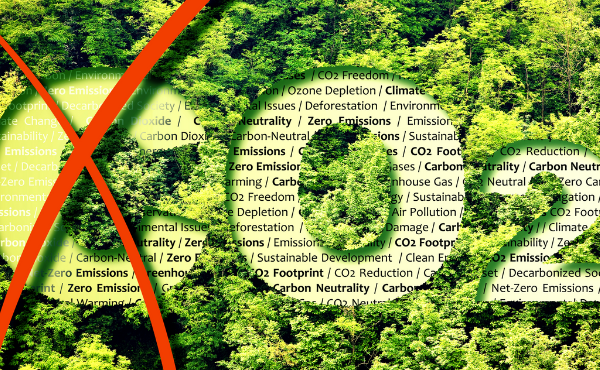The Paradox of Corporate Carbon Commitments

Professor Patrick Bolton will participate in the 2024 ECGI Responsible Capitalism Summit on 10 September.
--------------------------------------------------------------------------
Corporate commitments to carbon reduction are like New Year’s resolutions. They start with a bang, full of optimism and good intentions, but as the year drags on, the resolve fades, and by December, the gym is empty again. Except in the corporate world, the consequences of giving up are a bit more severe than gaining a few pounds; it's the future of the planet that’s at stake.
A Commitment to Commitments
So, you’ve got a bunch of companies signing up to reduce their carbon emissions. Think of it like a corporate version of a high school “Cool Kids Club,” but instead of wearing the latest sneakers, these companies are flaunting their “net-zero by 2050” badges. The paper by Bolton and Kacperczyk, “Firm Commitments,” dives into why companies are eager to join this green fraternity and what the impact has been. Spoiler: it’s complicated.
First, the good news. Over 4,000 companies have signed up for initiatives like the Science-Based Targets initiative (SBTi) and the Carbon Disclosure Project (CDP), vowing to slash their emissions. This isn’t a small feat, considering that the 500 largest corporations, known as the Global 500, account for a third of the world’s GDP and, unsurprisingly, a similar share of global emissions. When the big players make a move, it’s like seeing your favorite celebrity advocate for kale smoothies. Everyone starts paying attention.
Voluntary Commitments: A Weak Mechanism
However, as the paper highlights, there’s a catch. The companies making the most noise about their carbon commitments are often the ones with the least to lose. The firms that are already leaders in sustainability are the ones making the commitments, while the major polluters remain largely unaffected. The big emitters, the ones that could actually make a dent in global carbon levels, are often conspicuously absent from these initiatives. The net effect on overall emissions? Minimal.
Bolton and Kacperczyk’s analysis reveals a few critical insights. First, these voluntary commitments, while great for PR, have had a limited impact on aggregate emissions. Additionally, the commitments themselves can be a bit wishy-washy. Companies often set emission intensity targets instead of absolute reduction targets. Emission intensity targets allow companies to appear like they’re reducing emissions while actually just improving efficiency. If you’re producing more goods but emitting less per unit, your total emissions could still go up. It’s like saying you’re on a diet because you switched from whole milk to skim in your triple-layer chocolate cake recipe.
The Role of Governance and Peer Pressure
The paper also touches on the importance of corporate governance and peer pressure. Companies with more transparent governance structures and higher levels of institutional ownership are more likely to make commitments. Why? Because they’re under the microscope. These companies need to show they’re doing something about climate change, even if it’s just a symbolic gesture.
Peer pressure also plays a role. If all your competitors are joining the green club, it’s harder to stay on the sidelines. No one wants to be the company that didn’t get the memo on saving the planet, especially when it’s plastered all over your competitors’ websites. Interestingly, European companies are more serious about their commitments, likely because the regulatory and societal pressure is higher in Europe. In North America and Asia, the response has been more lukewarm, like when someone brings a salad to a barbecue.
The Need for Stronger Measures
So, are these commitments making a real difference or are they just a clever way for companies to avoid tougher regulations? The paper leans towards the latter. While there’s a slight reduction in emissions from companies that have made commitments, it’s mostly the low-hanging fruit that’s being picked. The real challenge—getting the big emitters to make meaningful changes—remains unmet.
The paper’s authors point out that these initiatives need to go beyond voluntary commitments to create a real impact. Without mandatory regulations, the biggest polluters have little incentive to change.
In the end, corporate carbon commitments are a bit of a mixed bag. They’re a step in the right direction, but they’re not a silver bullet. Voluntary commitments alone aren’t enough to drive the systemic change needed to combat climate change. The paper suggests that a combination of peer pressure, stricter regulations, and more ambitious targets is necessary to bring about meaningful reductions in emissions.
In the words of the authors, the journey towards a sustainable future requires more than just good intentions and symbolic gestures. It requires concrete actions and a commitment to real change, from all sectors of the economy, not just the ones that are easiest to change.
----------------------
Patrick Bolton is a Professor of Finance and Economics at Imperial College London. Previously, he was the David Zalaznick Professor of Business at the Columbia Business School. He also worked as a professor at the University of California at Berkeley, Harvard University, the C.N.R.S. Laboratoire d’ Econométrie de L’ Ecole Polytechnique, London School of Economics, Université libre de Bruxelles and Princeton University.
Read more:
- Access the paper here.
- Submit questions for the authors here.
- Register to join us in Berlin on 10th September.


